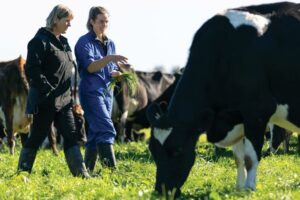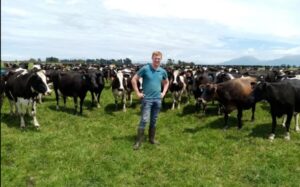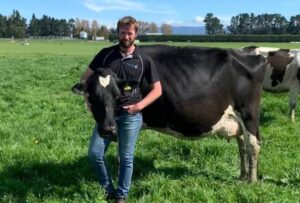FARM WORKER JOB Hiring In New Zealand 2022
New Zealand is expected to need a total of 5000 skilled farm workers by 2022. This is a well-paid, year-round job, which requires a valid New Zealand driver’s license. Some farmers seek people with experience with GPS systems and ag technology. If you’ve got the right experience, farm work can be a rewarding career.
Skilled workers are needed in New Zealand:
By 2022, New Zealand will need over 5000 skilled farm workers to work on the country’s growing farms. These workers can earn up to 1.5x the average wage to make a good living on a farm. As the country’s economy continues to grow, the demand for skilled workers will continue to rise. To help meet this demand, the Government of New Zealand has announced a $230 million injection for an apprenticeship boost program. This money will help support the establishment of 24,000 apprenticeships in the country. However, this funding is not enough to address the country’s broader skills shortage.

The New Zealand Ministry of Business, Innovation and Employment (MBIE) regularly reviews its Skills Shortage Lists to identify key skill shortages in the country. These lists are updated periodically and reflect feedback from industry groups. These lists play an important role in job search and visa applications.
Experience abroad is an advantage
If you’ve worked abroad, you’re likely to have an advantage when applying for a farm worker job in New Zealand in 2022. This is because companies here are generally smaller than those in the United States, and they often encourage employees to contribute ideas and knowledge. You’ll also have more responsibility in your role, and be in close proximity to decision-makers and senior employees. This gives you more influence over your organization and the chance to advance your career. Also, New Zealanders are known for their informal management style, and they take care to manage their employees as capable workers, not as managers.

In addition to your CV, you should also include a cover letter explaining why your skills and experience are valuable. The letter should be no more than one page long, and should make your qualifications and experience clear. The language used should be professional and friendly, but it should not sound boastful. Lastly, you should also bring copies of your qualifications, including a certified copy from a Justice of the Peace.
MORE JOBS
SALARY AND WAGE:
New Zealand’s agricultural industry is struggling to fill thousands of jobs. The growing migrant work scheme has increased the number of people looking to work on farms, which has put the industry under scrutiny. Some say Kiwis don’t want to work in the horticulture industry, and that the low wages are a cause of this shortage.

In New Zealand, there is a government-mandated minimum wage. No worker is allowed to be paid less than the minimum wage, and employers who do not comply will be punished. The minimum wage is the lowest legal rate for a given amount of work. Across the globe, most countries have a national minimum wage.
The legislation also requires farmers to pay minimum wages to employees. This applies to contract and sharemilkers. This is a legal requirement that sets a benchmark for business owners.
GETTING JOBS AS FARM WORKER:
The New Zealand dairy industry has a high demand for skilled workers and there are opportunities available all year round. The job requires a good work ethic and is suitable for those who want to be their own boss and have flexibility. Dairy farming jobs range from entry level farm assistants to the position of herd manager and farm operations manager.

DairyNZ has launched a campaign called GoDairy that aims to attract new Kiwi dairy workers. The campaign is an education initiative to get new Kiwis interested in dairy farming to consider a career in dairy farming. It is also leading the development of a Dairy Workforce Resilience Plan, in conjunction with industry stakeholders, government and dairy farmers, to create an evidence-based roadmap for future dairy workforce development.
In addition, the dairy sector has recently launched the Join Us campaign, which aims to link New Zealanders with dairy farmers. The campaign also invites Kiwis to apply for a dairy job, which is expected to increase in popularity.
